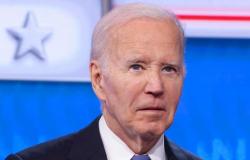
The National Regeneration Movement (Morena) has established itself as the main political force in Mexico after expanding the governorships it controls throughout the country in the elections organized since 2018. The political party, which obtained its registration to participate in elections in 2014, It has evolved from controlling four federal entities in the 2018 general elections to achieving 25 since this Sunday, when the governments of 8 States and Mexico City have been elected. Morena would have achieved victory in Yucatán, a traditionally conservative State, according to the quick count of the National Electoral Institute (INE) issued early Monday morning.
2018
2019
2021
2022
2023
2024
State governments for 2018.
State governments for 2019.
State governments for 2021.
State governments for 2022.
State governments by 2023.
State governments by 2024.
Brunette, P.T., PVEM
BREAD, PRI, PRD, MC
PES, Independent Candidates
The party led by President Andrés Manuel López Obrador won the governorships of Mexico City and those of Tabasco, Chiapas and Veracruz, in the southeast of the country, in 2018. López Obrador won the presidential elections that year and his victory brought the left to power in Mexico. The then candidate triumphed with 54% of the votes and became at that time the president with the greatest support in Mexican political history. Cuitláhuac García Jiménez was the first Morena ruler to assume the governorship in the state of Veracruz, in December 2018, until then a PRI bastion. Miguel Ángel Barbosa Huerta obtained the governorship of Puebla in 2019 with 46.50%. Barbosa passed away in December 2022.
Morena, which political analyst Jorge Zepeda Patterson has described as “a true tsunami in the country’s political life,” expanded its control of state governments in the 2021 elections, while President López Obrador maintained high popularity ratings. That year, the candidates of the ruling party took power in the States of Baja California and Baja California Sur, Campeche, Colima, Guerrero, Michoacán, Nayarit, Sinaloa, Sonora, Tlaxcala and Zacatecas. A year later, on September 25, 2022, Morena’s candidate, Mara Lezama, took office as governor of Quintana Roo, becoming the first woman to govern that tourist State. In 2022, Hidalgo, Oaxaca and Tamaulipas will also be colored cherry.
A year later, in the 2023 elections, Morena dealt a new blow to the opposition with victory in the State of Mexico, ending almost a century of PRI governments and consolidating López Obrador’s hegemony. Morena managed to snatch from the PRI its most precious jewel, the most populated entity with the greatest electoral weight in Mexico. She conquered it at the hands of Delfina Gómez, who became the first woman in history to achieve that governorship. “It is a victory for working families and women who have fought for our rights to be recognized,” said Gómez in her acceptance speech, in which she described her victory as “a historic moment.”
The PRI has been the big loser of this change in the political colors of the entities of the Republic. The party that controlled power for 70 consecutive years, from 1930 to 2000, governs only two entities in the north of the country, Durango and Coahuila, the only State where there has been no political alternation.
In this way, Morena strengthened its territorial expansion until reaching the elections this Sunday, in which it has managed to maintain the Presidency of the Republic with the help of its candidate, Claudia Sheinbaum, who has triumphed with more than 59% of the votes. . The ruling party has also triumphed in the capital, Mexico City, which will be led by Clara Brugada, who has defeated her main opponent, Santiago Taboada. According to the preliminary count of the capital’s electoral authorities, Brugada has achieved an electoral result of between 49% and 52%, compared to 37% and 40% for her opponent.
Early Monday morning, preliminary results also seemed to offer an advantage to the cherry wave in Yucatán, one of the states governed by the conservative National Action Party (PAN). The quick count published by the National Electoral Institute (INE) early Monday morning gave the advantage to Joaquín Díaz Mena, candidate of the coalition led by Morena, who would have achieved between 46.5 and 51.6% of the vote. , compared to Renan Barrera, from the alliance led by the PAN and the PRI, who totaled between 41.4% and 46.7%. If this difference were consolidated, it would be a tough defeat for the opposition.
The preliminary results show the unstoppable advance of Morena in Mexico, the party that began governing four states and that could have control of 25 of the 32 states.
Sign up for the EL PAÍS México newsletter for free and to whatsapp channel and receive all the key information on current events in this country.





